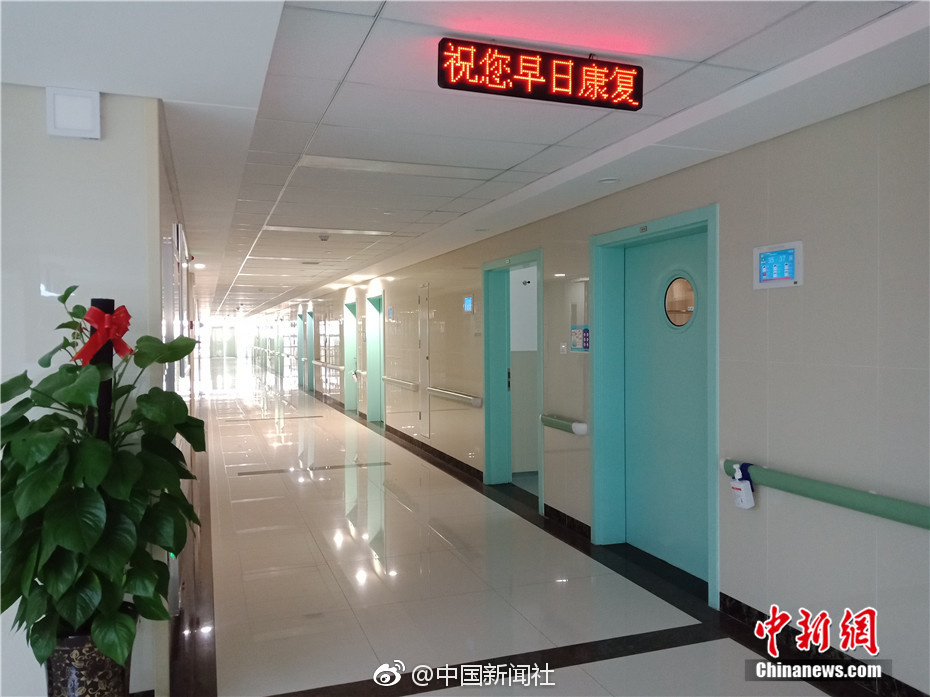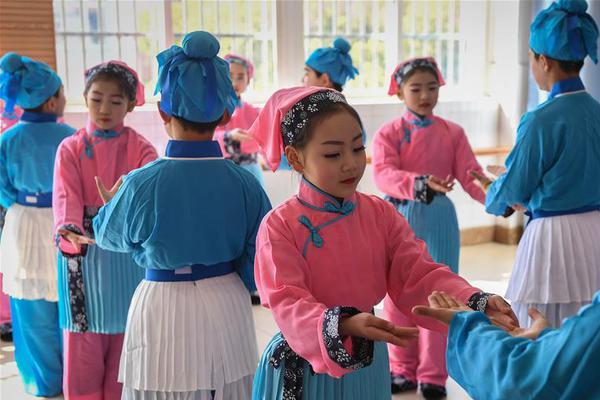
1. The five functions of the operating system are processor management, memory management, device management, file management and job management. Processor management The most basic function of processor management is to process interrupt events. After configuring the operating system, various events can be processed.
2. The main function of the computer operating system is process management, and its work is mainly process scheduling. In the case of a single user and a single taskNext, the processor is only monopolized by one user's task, and the process management work is very simple.
3. Operating System (abbreviation: OS) is a group of interrelated system software programs that supervise and control computer operation, use and run hardware, software resources and provide public services to organize user interaction.
4. Five major management functions of the operating system: (1) Job management: including tasks, interface management, human-computer interaction, graphical interface, voice control and virtual reality, etc. ( 2) File management: also known as information management. ( 3) Storage management: The essence is the management of storage "space", which mainly refers to the management of the main memory.
Any information system has five basic functions, namely: information collection and recording (input); information storage; information processing; information transmission; information output .
According to the functional introduction of the information system, the information system has five basic functions: input, storage, processing, output and control. Different functions have different functions, such as input function: the input function of the information system is determined by the purpose to be achieved by the system, the ability of the system and the permission of the information environment.
Five basic functions of the information system: input, storage, processing, output and control. Input function: The input function of the information system is determined by the purpose to be achieved by the system, the ability of the system and the permission of the information environment.Storage function: Storage function refers to the ability of the system to store various information and data. Mainly including: statistical functions.
The operating system has five functions: processor management: mainly controls and manages the work of the CPU. Storage management: mainly allocate and manage memory. Device management: mainly manage basic input and output devices. File management: responsible for the organization, storage, operation and protection of computer files.
The functions of the computer operating system include: processor management, memory management, device management, file management, job management and other functional modules. Processor management. The most basic function of processor management is to handle interrupt events. The processor can only detect interrupt events and generate interrupts and cannot process them.
The main function of the computer operating system is process management, and its main work is process scheduling. In the case of a single user and a single task, the processor is only monopolized by one user's task, and the work of process management is very simple.
The main functions of the operating system are process and processor management, job management, storage management, device management and file management, as follows: process and processor management. Because the execution of the program must rely on the processor, only one program flow can be processed and executed at any time. Homework management.
I) Processor management The most basic function of processor management is to handle interrupt events. The processor can only detect interrupt events and generate interrupts, and cannot handle these interrupt events. After configuring the operating system, all types of events can be handled.Another function of processor management is processor scheduling.
Five management functions of the operating system: job management: including tasks, interface management, human-computer interaction, graphical interface, voice control and virtual reality, etc. File management: also known as information management. Storage management: The essence is the management of storage "space", which mainly refers to the management of the main memory.

The storage management function of the operating system is to manage memory resources. It mainly realizes memory allocation and recovery, storage protection and memory expansion. The device management of the device management operating system is responsible for allocating and recycling external devices, and controlling external devices to operate according to the requirements of user programs.
The functions of the computer operating system include: processor management, memory management, device management, file management, job management and other functional modules. Processor management. The most basic function of processor management is to handle interrupt events. The processor can only detect interrupt events and generate interrupts and cannot process them.
The five functions of the operating system are processor management, memory management, device management, file management and job management.Processor management The most basic function of processor management is to process interrupt events. After configuring the operating system, various events can be processed.
Bingo Plus stock-APP, download it now, new users will receive a novice gift pack.
1. The five functions of the operating system are processor management, memory management, device management, file management and job management. Processor management The most basic function of processor management is to process interrupt events. After configuring the operating system, various events can be processed.
2. The main function of the computer operating system is process management, and its work is mainly process scheduling. In the case of a single user and a single taskNext, the processor is only monopolized by one user's task, and the process management work is very simple.
3. Operating System (abbreviation: OS) is a group of interrelated system software programs that supervise and control computer operation, use and run hardware, software resources and provide public services to organize user interaction.
4. Five major management functions of the operating system: (1) Job management: including tasks, interface management, human-computer interaction, graphical interface, voice control and virtual reality, etc. ( 2) File management: also known as information management. ( 3) Storage management: The essence is the management of storage "space", which mainly refers to the management of the main memory.
Any information system has five basic functions, namely: information collection and recording (input); information storage; information processing; information transmission; information output .
According to the functional introduction of the information system, the information system has five basic functions: input, storage, processing, output and control. Different functions have different functions, such as input function: the input function of the information system is determined by the purpose to be achieved by the system, the ability of the system and the permission of the information environment.
Five basic functions of the information system: input, storage, processing, output and control. Input function: The input function of the information system is determined by the purpose to be achieved by the system, the ability of the system and the permission of the information environment.Storage function: Storage function refers to the ability of the system to store various information and data. Mainly including: statistical functions.
The operating system has five functions: processor management: mainly controls and manages the work of the CPU. Storage management: mainly allocate and manage memory. Device management: mainly manage basic input and output devices. File management: responsible for the organization, storage, operation and protection of computer files.
The functions of the computer operating system include: processor management, memory management, device management, file management, job management and other functional modules. Processor management. The most basic function of processor management is to handle interrupt events. The processor can only detect interrupt events and generate interrupts and cannot process them.
The main function of the computer operating system is process management, and its main work is process scheduling. In the case of a single user and a single task, the processor is only monopolized by one user's task, and the work of process management is very simple.
The main functions of the operating system are process and processor management, job management, storage management, device management and file management, as follows: process and processor management. Because the execution of the program must rely on the processor, only one program flow can be processed and executed at any time. Homework management.
I) Processor management The most basic function of processor management is to handle interrupt events. The processor can only detect interrupt events and generate interrupts, and cannot handle these interrupt events. After configuring the operating system, all types of events can be handled.Another function of processor management is processor scheduling.
Five management functions of the operating system: job management: including tasks, interface management, human-computer interaction, graphical interface, voice control and virtual reality, etc. File management: also known as information management. Storage management: The essence is the management of storage "space", which mainly refers to the management of the main memory.

The storage management function of the operating system is to manage memory resources. It mainly realizes memory allocation and recovery, storage protection and memory expansion. The device management of the device management operating system is responsible for allocating and recycling external devices, and controlling external devices to operate according to the requirements of user programs.
The functions of the computer operating system include: processor management, memory management, device management, file management, job management and other functional modules. Processor management. The most basic function of processor management is to handle interrupt events. The processor can only detect interrupt events and generate interrupts and cannot process them.
The five functions of the operating system are processor management, memory management, device management, file management and job management.Processor management The most basic function of processor management is to process interrupt events. After configuring the operating system, various events can be processed.
Free sports events uefa champions league app android
author: 2025-01-12 08:50App to watch Champions League live free
author: 2025-01-12 07:17 Casino Plus free 100
Casino Plus free 100
278.39MB
Check Bingo Plus stock
Bingo Plus stock
195.24MB
Check European Cup live
European Cup live
972.35MB
Check Casino free 100 no deposit
Casino free 100 no deposit
219.25MB
Check Europa League app
Europa League app
286.23MB
Check DigiPlus
DigiPlus
181.24MB
Check Casino Plus login register
Casino Plus login register
296.52MB
Check App to watch Champions League live free
App to watch Champions League live free
783.75MB
Check casino plus free 100
casino plus free 100
197.34MB
Check Hearthstone Arena class tier list 2024
Hearthstone Arena class tier list 2024
264.35MB
Check Casino Plus app
Casino Plus app
334.81MB
Check DigiPlus stock
DigiPlus stock
567.45MB
Check Free sports events uefa champions league app android
Free sports events uefa champions league app android
447.31MB
Check Bingo Plus
Bingo Plus
714.58MB
Check Hearthstone arena deck Builder
Hearthstone arena deck Builder
738.34MB
Check Casino Plus GCash login
Casino Plus GCash login
486.73MB
Check Casino Plus app
Casino Plus app
296.65MB
Check TNT Sports
TNT Sports
765.77MB
Check Free sports events uefa champions league app android
Free sports events uefa champions league app android
552.76MB
Check bingo plus update today
bingo plus update today
512.74MB
Check TNT Sports
TNT Sports
735.22MB
Check UEFA Europa League
UEFA Europa League
827.69MB
Check UEFA Europa League
UEFA Europa League
739.88MB
Check Casino free 100 no deposit
Casino free 100 no deposit
933.32MB
Check Casino Plus app
Casino Plus app
922.96MB
Check Casino Plus free 100
Casino Plus free 100
469.68MB
Check DigiPlus stock
DigiPlus stock
587.86MB
Check Hearthstone Arena win rate
Hearthstone Arena win rate
666.35MB
Check TNT Sports
TNT Sports
743.24MB
Check Europa League app
Europa League app
148.78MB
Check Hearthstone arena deck Builder
Hearthstone arena deck Builder
645.43MB
Check UEFA EURO
UEFA EURO
257.42MB
Check UEFA Champions League
UEFA Champions League
751.52MB
Check UEFA live free
UEFA live free
436.69MB
Check Bingo Plus
Bingo Plus
877.13MB
Check 100 free bonus casino no deposit GCash
100 free bonus casino no deposit GCash
634.92MB
Check
Scan to install
Bingo Plus stock to discover more
Netizen comments More
2402 DigiPlus stock
2025-01-12 09:33 recommend
2315 Casino free 100 no deposit
2025-01-12 08:56 recommend
2369 Hearthstone Arena Tier List
2025-01-12 08:30 recommend
799 Casino redeem
2025-01-12 08:28 recommend
1947 bingo plus update today Philippines
2025-01-12 07:11 recommend